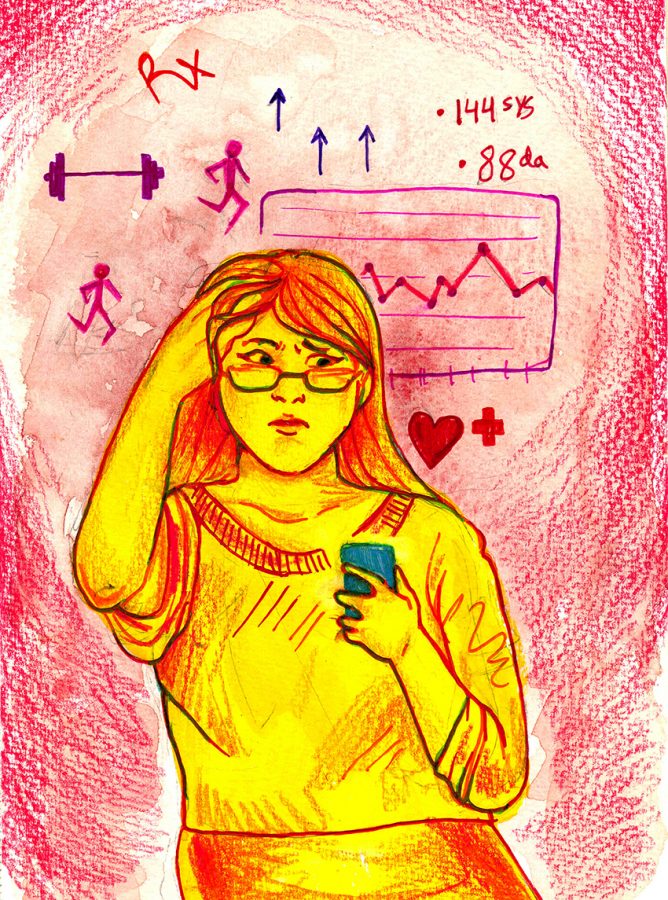Health and wellness technology is everywhere — fitbit apps, patient portals and nutrition trackers — but a new study by UT researchers shows that this technology might not be helping the people who need it the most: those who have a hard time understanding health information.
Michael Mackert, UT public relations and advertising associate professor and the lead author of the study, examined how health literacy relates to usage of health technology tools.
Health literacy is the ability to find, understand and apply relevant health information, as well as communicate effectively with doctors, according to Mackert. The study, which was the first to look at this issue, found that people with low health literacy are less likely to use health technology because they don’t think of it as helpful and easy to use, he said.
“A lot of people struggle with health literacy at some point in their lives,” said Amanda Mabry-Flynn, an advertising assistant professor at the University of Illinois Urbana-Champaign who worked on the study as a doctoral student at UT. “Sometimes if you’re reading through information on a medicine that you’re taking that talks a lot about various potential side effects, it can be confusing even for someone who’s really well-educated.”
Mabry-Flynn said lower health literacy can lead to negative health effects for patients and could cause patients to avoid going to the doctor until a health problem becomes more serious.
“[These] people may be less likely to see a doctor because they are afraid of looking uneducated or they’re afraid of asking questions when doctors don’t say things in a way that’s easy to understand,” Mabry-Flynn said.
Susan Hochman, University Health Services assistant director for health promotion and public health, said there hasn’t been a lot of research about the levels of health literacy of college students. However, she said UHS has to take into account that student health literacy varies widely and many students access health services on their own for the first time in college and need help figuring out how the healthcare system works.
Hochman said one example of this is the UHS nurse advice line, which students can call to learn more about any health problems they may have.
“I think we’re really sensitive to the fact that navigating healthcare can be complex for anyone, especially those with lower health literacy and for those that are getting healthcare for the first time on their own or having to make decisions about their health on their own,” Hochman said.
Hochman said that it can’t be assumed that students in higher education institutions such as UT have high health literacy.
“From an administrator standpoint, it’s important to me that we are presenting all of our information in a way that is considerate of where somebody might fall with their health literacy and that health information and access to information on how to access services is very clear to students,” Hochman said.
Designing health technology with low health literacy in mind can help lower health-literate people use the technology better, but it would also improve the way everybody overall uses the technology, Mackert said.
“If you develop as if the person you’re trying to reach might struggle with health information, everyone’s going to win, because no one ever asks for more complicated health information,” Mackert said. “If app developers did a better job of developing for this specific audience, everyone else would just be able to use their app more easily too.”
During the study, the research team also collected data on the stigma associated with low health literacy, and the research team is working on that part of the research now, Mabry-Flynn said.
“People may feel like … they should be able to understand this information, and so when they don’t, they feel ashamed,” Mabry-Flynn said. “That shame may result in not asking for help, because they don’t want people to know that they don’t understand. I think the stigma ends up resulting in people trying to hide any struggle they may have with understanding health information.”















